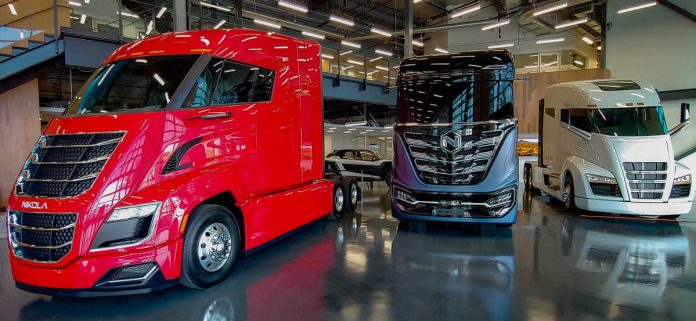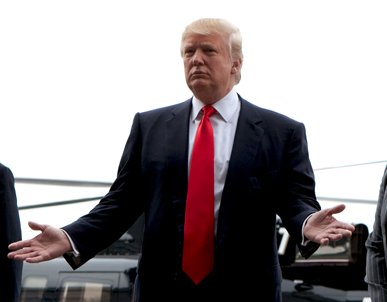Hydrogen Truck Maker Nikola Claims It Has Breakthrough Battery Tech—And … Nikola Motor.
Hydrogen fuel cell electric truck startup Nikola Corp. is touting a high-storage battery that could increase the current range of electric passenger cars from 300 to 600 miles with no increase in battery size.
“This is the biggest advancement we have seen in the battery world,” said Trevor Milton, Nikola Motor Co. CEO. “We are not talking about small improvements; we are talking about doubling your cellphone battery capacity. We are talking about doubling the range of BEVs and hydrogen-electric vehicles around the world.”
Among the benefits, Nikola’s battery-electric trucks could drive 800 miles fully loaded between charges and weigh 5,000 pounds less than competitors’ if the same battery size was kept. Its hydrogen-electric fuel cell trucks could surpass 1,000 miles between stops and top off in 15 minutes.
Analysts took a “wait-and-see” stance on the announcement.
“There’s all kinds of things related to batteries over time where people have talked about major energy density improvements,” Mike Ramsey, a research director at Gartner Inc., told FreightWaves. “If it’s true, if they can do it, they instantaneously become one of the most important innovators of this century.”
Sam Abuelsamid, principal analyst at Navigant Research, expressed some skepticism because Nikola offered few details.
“I haven’t seen any evidence to back up any of these claims,” he said. “I’ll wait and see when they actually have something to show us.
“In a lot of other areas, I think Nikola is moving in the right direction with what they’re trying to do with the fuel cell trucks,” Abuelsamid said. “They’ve got some strong partnerships with Bosch and others that will help them execute on that, so as a company with the stuff they’ve already announced, I think they have the chance to be successful.”
Nikola said because of the potential societal impact and reduced emissions, it will share the intellectual property (IP) with other manufacturers and competitors that contribute to Nikola’s IP license and a new consortium.
The new battery would have a record energy density of 1,100 watt-hours per kilogram on the material level and 500 watt-hours per kilogram on the production cell level, more than double current lithium-ion battery cells. It would reduce weight 40% compared to lithium-ion cells and cut 50% of the material cost per kilowatt-hour (kWh) compared to lithium-ion batteries.
The Nikola prototype removes binder material and current collectors, which allows for more energy storage within the cell.
It is also expected to pass nail penetration standards, thus reducing potential vehicle fires, the company said in a release Nov. 19. The technology is designed to operate in existing vehicle conditions. Cycling the cells over 2,000 times has shown acceptable end-of-life performance.
Without providing details, Nikola said its new cell technology is environmentally friendly and easy to recycle, positively impacting Earth’s resources, landfills and recycling plants compared to conventional lithium-ion cells that contain toxic elements.
“Since I’ve been paying attention to the battery-electric industry, there have been a lot of announced breakthroughs and no implementations that have happened,” Ramsey said. “What you see instead is gradual material changes that have made improvements.”
The next anticipated breakthrough is a solid-state battery, which Toyota Motor Corp. is working on with a 2023 target date.
Nikola entered into a letter of intent earlier in November to acquire a world-class battery engineering team to help bring the new battery to preproduction. Nikola will add 15 PhD and five master’s degree team members.
Additional details of the acquisition will be disclosed at Nikola World 2020, where the company will show the batteries charging and discharging. The event is expected to be held next fall.













